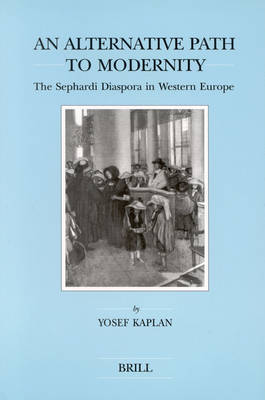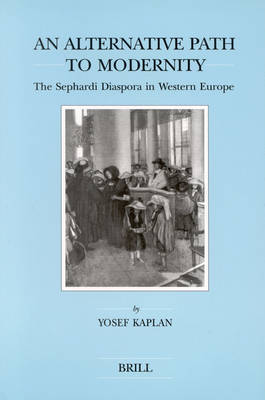
Door een staking bij bpost kan je online bestelling op dit moment iets langer onderweg zijn dan voorzien. Dringend iets nodig? Onze winkels ontvangen jou met open armen!
- Afhalen na 1 uur in een winkel met voorraad
- Gratis thuislevering in België vanaf € 30
- Ruim aanbod met 7 miljoen producten
Door een staking bij bpost kan je online bestelling op dit moment iets langer onderweg zijn dan voorzien. Dringend iets nodig? Onze winkels ontvangen jou met open armen!
- Afhalen na 1 uur in een winkel met voorraad
- Gratis thuislevering in België vanaf € 30
- Ruim aanbod met 7 miljoen producten
Zoeken
€ 121,27
+ 242 punten
Omschrijving
The essays in this volume deal with the social and intellectual history of the Western Spanish and Portuguese Jews who established new communities in Northwestern Europe during the seventeenth century. The founders of these communities were mainly former Marranos, descendants of those Jews who had converted to Christianity in the closing years of the Middle Ages. After being separated from the Jewish world for many generations, they returned to Judaism and became an integral part of the Sephardi nation. Amsterdam became the metropolis of this new Jewish diaspora, which was characterised by both its involvement in colonial trade and its intellectual ferment. The reencounter of these Jews with Judaism was a complex affair, and for many of these former New Christians rabbinic Judaism aroused harsh criticism. In order to set the boundaries of their new identity, the leadership of the Sephardi communities of Amsterdam, Hamburg and London adopted a variety of strategies designed to rein in these wayward spirits. This process of socialisation into the Jewish world created a new type of Judaism, and those whose Jewish life was framed by this new amalgam can be considered the precursors of modernity in European Jewish society.
Specificaties
Betrokkenen
- Auteur(s):
- Uitgeverij:
Inhoud
- Aantal bladzijden:
- 320
- Taal:
- Engels
- Reeks:
- Reeksnummer:
- nr. 28
Eigenschappen
- Productcode (EAN):
- 9789004117426
- Verschijningsdatum:
- 19/10/2000
- Uitvoering:
- Hardcover
- Formaat:
- Genaaid
- Afmetingen:
- 179 mm x 239 mm
- Gewicht:
- 734 g

Alleen bij Standaard Boekhandel
+ 242 punten op je klantenkaart van Standaard Boekhandel
Beoordelingen
We publiceren alleen reviews die voldoen aan de voorwaarden voor reviews. Bekijk onze voorwaarden voor reviews.











